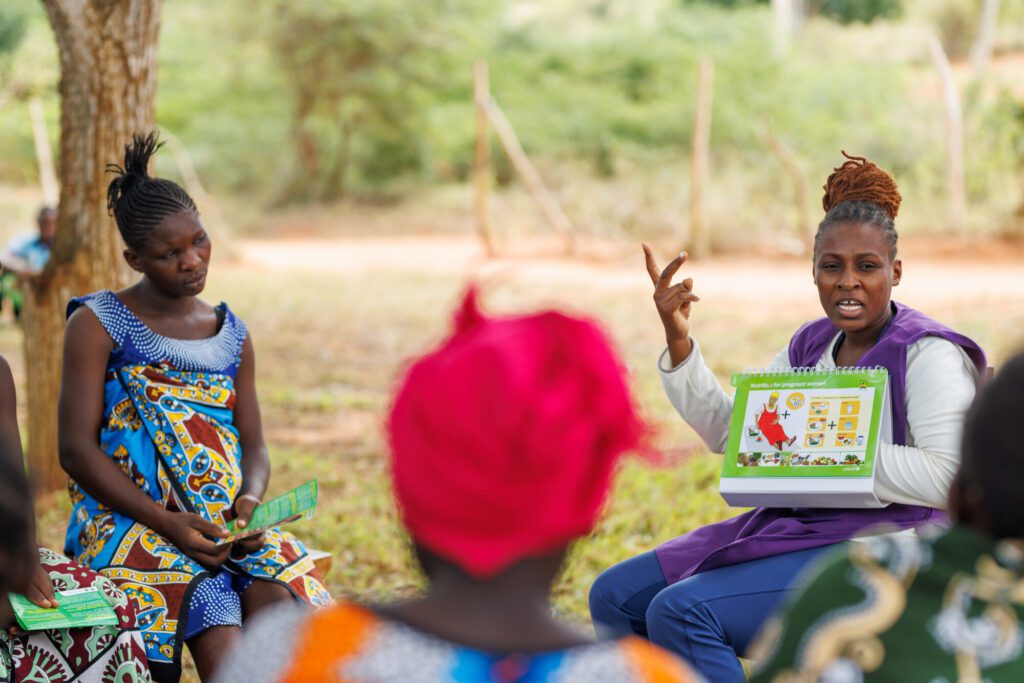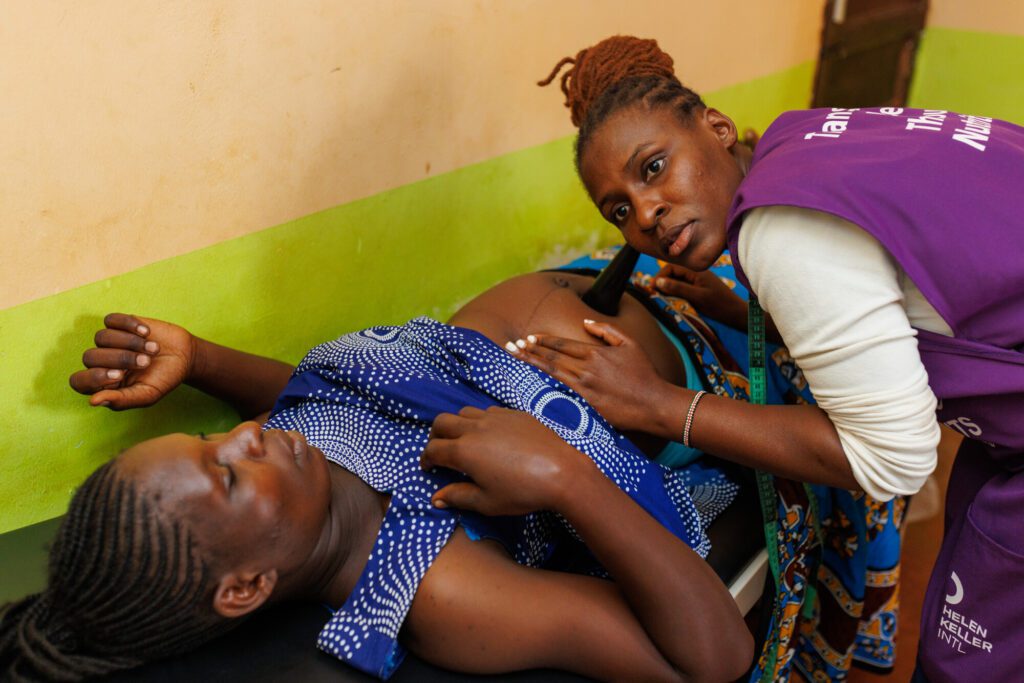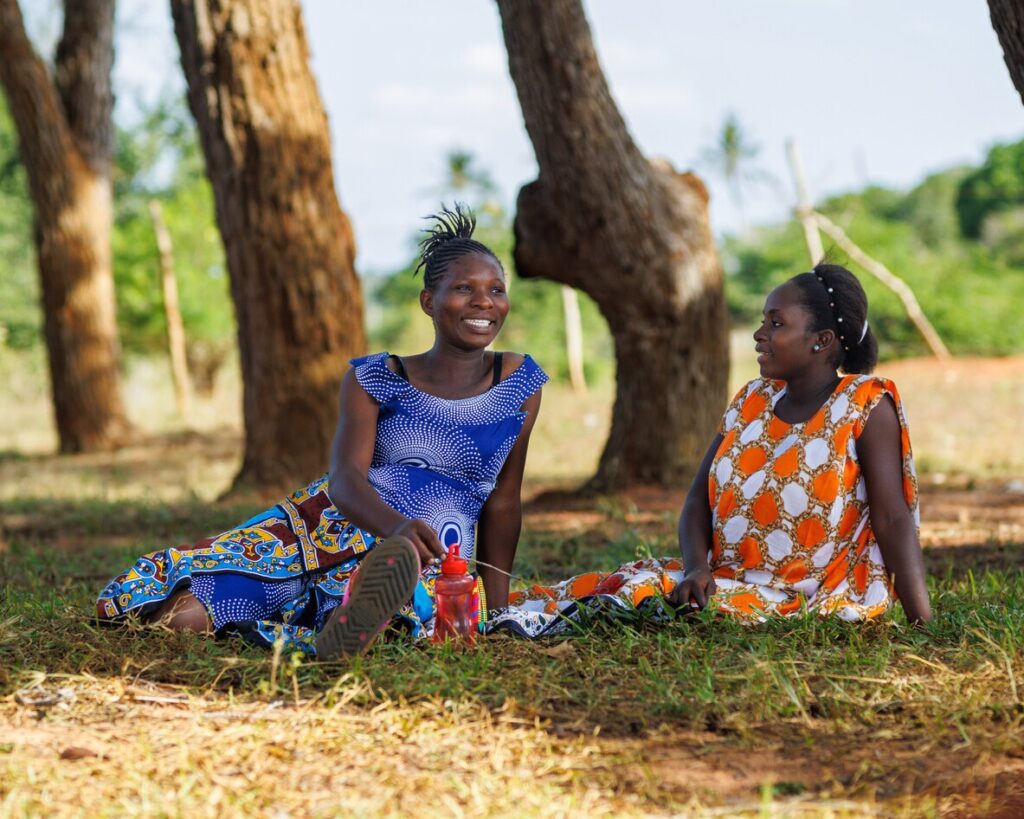Peer Support Groups Improve Maternal Health in Kenya
During her first pregnancy, Mary Furaha didn’t attend any prenatal care appointments. Her second pregnancy is different. The 23-year-old is not only regularly visiting her healthcare provider but is also attending a peer support group for pregnant women in her community.
Mary learned about the meetings from a community health promoter who invited her to join the group for women under 24 called Binti to Binti (Binti means “young ladies” in Swahili) at the Dzikunze Dispensary in Kilifi County, Kenya. Since attending the sessions, she has learned about the importance of prenatal care and warning signs to watch for during pregnancy that would require medical attention.
“I learnt in the group that if I experienced unexplained bleeding, severe headaches with blurred vision, or severe abdominal pain, I should go to the hospital,” Mary says.
High Risk of Maternal Mortality in Kenya
Helping pregnant women learn about prenatal care, healthy pregnancies, and potentially dangerous symptoms is a key part of the group’s purpose. Although it has decreased in recent decades, maternal mortality remains high in Kenya, and Kilifi County on Kenya’s coast, where Mary lives, has the fifth highest rate of maternal mortality in the country.

According to Dzikunze Dispensary nurse-midwife Salome Kalama, regular prenatal care could help avoid some of these deaths by catching potential issues early and ensuring women receive treatment when needed. The World Health Organization recommends at least eight interactions with their healthcare provider during pregnancy. Unfortunately, that isn’t always the norm in Kilifi County because many women don’t know what prenatal care includes and why it is so important.
“Some come when they are five months pregnant,” she says, noting that many women don’t attend any prenatal care appointments.
To promote prenatal care and support healthy pregnancies, Kilifi County partnered with Helen Keller Intl, with support from the Church of Jesus Christ of Latter-day Saints, to organize peer education and support groups for pregnant women. Community health promoters visit pregnant women at home and invite them to visit the health facility on a set date when they can receive prenatal care and attend the peer support group after their appointment.
There are two peer support groups based on age, the Binti to Binti group that Mary attends and a Mama group for women over 24. Each group meets for about two hours per session to have in-depth, interactive discussions about health issues related to pregnancy, including good nutrition and prenatal care.
Improving Maternal Health and Building Relationships
Kilifi County Nutrition Coordinator Angela Wali shares that the peer support groups have helped them tackle health issues that may increase the risk of complications, including maternal anemia and malaria.
Anemia during pregnancy increases the risk of excessive bleeding during childbirth, which the Kenya Ministry of Health says contributes to nearly half of all maternal deaths in the country. During the meetings, Mary and her peers receive iron-folic acid supplements to help reduce anemia and provide critical nutrients that support improved maternal and infant health.
“The percentage of pregnant women who are anemic in Kilifi is above 50%, and the Binti to Binti group has taught the mothers about the importance of taking the [iron-folic acid supplements] daily and eating iron-rich foods,” Angela says.

Malaria is also endemic in Kilifi County, with a year-round risk of transmission. The mosquito-borne disease can pose serious risks for both mother and child. During her prenatal care visits, Salome gave Mary three doses of preventive anti-malarial medication during her pregnancy to help protect her health and the health of her baby.
Salome found that the women who attended the peer support group had a better understanding of what to expect during their prenatal visits and what questions to ask their healthcare providers.
“They learnt that they would know the position of the baby, their hemoglobin levels, and the neonatal scans, which can provide information such as whether they would [have] twins, and this prepares the mother psychologically for her delivery,” she says.
In addition to learning about how to stay healthy during pregnancy, the group gave the women a place to find social support during their pregnancies and build lasting relationships with other women in their community.
“I have made friends in the group, and I always look forward to meeting when I come for the Binti to Binti groups,” Mary says.










